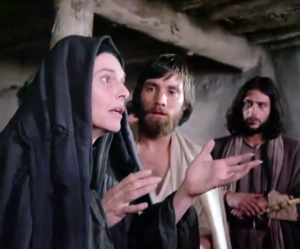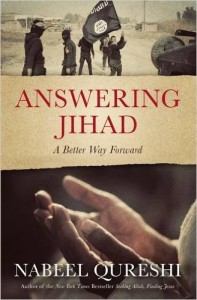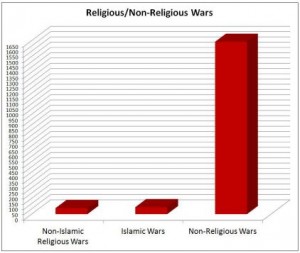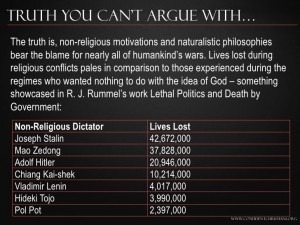- ABOUT
- ARGUMENTS – EXISTENCE OF GOD
- The Argument from Contingency
- Cosmological Argument
- Moral Argument
- Ontological Argument
- Teleological/Design/Fine-tuning Argument
- Pascal’s Wager
- The Argument from Religious Experience
- The Argument from Miracles
- The Argument from Consciousness
- The Argument from Truth
- The Argument from Desire
- The Argument from Aesthetic Experience
- HISTORICITY – RESURRECTION
- CHRISTIANITY & ISLAM
- APOLOGETICS
It has often been stated that the Christian faith stands or falls on history, that of the historical event of the Resurrection of Jesus of Nazareth. William Lane Craig states, “Without the belief in the resurrection the Christian faith could not have come into being.” [1] N. T. Wright explains further the core belief of the early church, “…the life of early Christianity is inexplicable apart from the assumption that virtually all early Christians…did indeed believe that Jesus of Nazareth had been raised bodily from the dead, but with a transformed embodiment, not simply in a resuscitation to an identical body; and that this event was both the proleptic fulfillment of Israel’s great hope and something for which no one at the time had been prepared. This belief is the reason why early Christianity was, to its core, a ‘resurrection’ movement, with this hope standing at the center, not the periphery, of its vision.” [2]
But one may rightly ask, “what is the basis of this belief”? On what evidence are we making the truth claim that Jesus did indeed rise from the dead?
 Again, Dr. Craig writes, “The origin of Christianity therefore hinges on the belief of the early disciples that God had raised Jesus from the dead.”[3] John, a disciple and follower of Jesus from the beginning of his ministry, gives testimony of being eyewitnesses to Jesus’ life, death and resurrection:
Again, Dr. Craig writes, “The origin of Christianity therefore hinges on the belief of the early disciples that God had raised Jesus from the dead.”[3] John, a disciple and follower of Jesus from the beginning of his ministry, gives testimony of being eyewitnesses to Jesus’ life, death and resurrection:
That which was from the beginning, which we have heard, which we have seen with our eyes, which we looked upon and have touched with our hands, concerning the word of life—the life was made manifest, and we have seen it, and testify to it and proclaim to you the eternal life, which was with the Father and was made manifest to us—that which we have seen and heard we proclaim also to you…(1 John 1:1-3 ESV)
The writers of the New Testament wrote as eyewitnesses, or from firsthand information, as those who experienced the historical life, death and resurrection of Jesus Christ. Rufus M. Jones, Quaker theologian and philosopher explains the unique perspective and place of an eyewitness—“The apostles were for many reasons pre-eminent in whatever community they found themselves. They spoke with the authority which one who has seen and heard and handled always possesses.” [4]
In the intro of his gospel, Luke clearly states who his sources were:
Inasmuch as many have undertaken to compile a narrative of the things that have been accomplished among us, just as those who from the beginning were eyewitnesses and ministers of the word have delivered them to us, it seemed good to me also, having followed all things closely for some time past, to write an orderly account for you, most excellent Theophilus, that you may have certainty concerning the things you have been taught. (Luke 1:1-4 ESV)
Peter and John also affirmed the standard of eyewitness testimony:
For we did not follow cleverly devised myths when we made known to you the power and coming of our Lord Jesus Christ, but we were eyewitnesses of his majesty. (2 Peter 1:16 ESV)
He who saw it has borne witness—his testimony is true, and he knows that he is telling the truth—that you also may believe. (John 19:35 ESV)
Regarding the value of the primary source of eyewitness testimony as found in the New Testament, F. F. Bruce writes:
“The earliest preachers of the gospel knew the value of…first-hand testimony, and appealed to it time and again. “We are witnesses of these things,” was their constant and confident assertion. And it can have been by no means so easy as some writers seem to think to invent words and deeds of Jesus in those early years, when so many of His disciples were about, who could remember what had and had not happened. And it was not only friendly eyewitnesses that the early preachers had to reckon with; there were others less well disposed who were also conversant with the main facts of the ministry and death of Jesus. The disciples could not afford to risk inaccuracies (not to speak of willful manipulation of the facts), which would at once be exposed by those who would be only too glad to do so. On the contrary, one of the strong points in the original apostolic preaching is the confident appeal to the knowledge of the hearers; they not only said, “We are witnesses of these things,” but also, “As you yourselves also know” (Acts 2:22). Had there been any tendency to depart from the facts in any material respect, the possible presence of hostile witnesses in the audience would have served as a further corrective. [5]
When we consider the context in which the apostles preached and later recorded their eyewitness testimony, we can be assured that their testimony is true, considering the social parameters within which they were working. To repeat what was early stated by F. F. Bruce, “The disciples could not afford to risk inaccuracies (not to speak of willful manipulation of the facts), which would at once be exposed by those who would be only too glad to do so.”
Dynamics of Eyewitness Testimony
Many have highlighted what they see as contradictions or inconsistencies between the New Testament accounts of Jesus’ life, death, and particularly His Resurrection. The motive behind most of these ‘highlights’ and/or accusations is to cast doubt on the character and credibility of the eyewitnesses themselves, and as such, attempt to render their testimony unreliable and untrustworthy. I know of no one who has addressed this issue more comprehensively and convincingly than author, cold-case detective, and adjunct professor of apologetics at Biola University, J. Warner Wallace. (you can visit his web sites, here and here.) In evaluating eyewitness accounts, J. Warner Wallace offers the following instruction:
I already acknowledged two things about witnesses: they seldom agree about every detail and they are sometimes mistaken about some aspect of their testimony. In spite of this, witnesses can be deemed reliable and trusted once we do the hard work of determining why they might see something differently or incorrectly. In fact, judges in the state of California instruct juries that they are not to distrust a witness just because that witness may be wrong about some aspect of his or her testimony:
“Do not automatically reject testimony just because of inconsistencies or conflicts. Consider whether the differences are important or not. People sometimes honestly forget things or make mistakes about what they remember. Also, two people may witness the same event yet see or hear it differently” (Section 105, Judicial Council of California Criminal Jury Instructions, 2006)
Witnesses can be wrong in some aspect of their testimony, yet be considered reliable, over all. Once the jury understands why the witness might be mistaken in a detail, they are encouraged to consider the rest of the testimony reliable.[6]
In his article, How Many Women Visited the Tomb of Jesus, Wallace offers the following criteria in establishing the credibility and trustworthiness of eyewitness testimony:
Identify the Common Details
When interviewing multiple eyewitnesses, I listen carefully for common features in their testimony. In every witness observation, some details are more important than others; some aspects of the event stick out in the mind of the observers more than others. In this case, every author is clear about one thing: women (plural) were the first to find the empty tomb. The women who attended to Jesus during his ministry loved Him enough to attend to his body after the crucifixion. According to Mark, they went to the tomb for a purpose: to anoint Jesus with spices. It’s not surprising the women disciples of Jesus would be thoughtful and caring enough to want to do this. Every gospel author agrees; the women came to the tomb and were the first to discover it empty…
When interviewing multiple eyewitnesses, I listen carefully for common features in their testimony. In every witness observation, some details are more important than others; some aspects of the event stick out in the mind of the observers more than others. In this case, every author is clear about one thing: women (plural) were the first to find the empty tomb. The women who attended to Jesus during his ministry loved Him enough to attend to his body after the crucifixion. According to Mark, they went to the tomb for a purpose: to anoint Jesus with spices. It’s not surprising the women disciples of Jesus would be thoughtful and caring enough to want to do this. Every gospel author agrees; the women came to the tomb and were the first to discover it empty…
Recognize the Perspective of Each Eyewitness
Every witness offers a view of the event from his or her unique perspective. I’m not just talking about geographic or locational perspectives here, but I am also talking about the personal worldview, history and experience every witness brings to the crime. All witness testimony is colored by the personal interests, biases, aspirations, concerns and idiosyncrasies of the eyewitnesses. In this particular case the most glaring exception in the description of the women is from John’s account. John mentions only Mary Magdalene by name. He does, however, tell us this Mary was not alone. When describing her visit to the tomb, Mary later tells Peter, “They have taken away the Lord out of the tomb, and we do not know where they have laid Him.” So even John’s account acknowledges the presence of additional women. The issue here is not that each author describes a different number of women, but that each author chooses to identify different women by name. Why is this the case? Once again, it all comes down to the purpose and individuality of each reporter, and as investigators, we may never know precisely why variations of this nature occurred. But John’s Gospel does seem to give us a clue. John appears to be focused on the first male eyewitnesses of the empty tomb. Unlike other authors, John spends much more time and gives much more detail about how he and Peter discovered the empty tomb. As a result, the women are in a secondary role in John’s narrative. Mary Magdalene is mentioned by name simply because she happened to be the woman who first contacted Peter about the tomb. Even though John acknowledges there were other women involved (as seen in Mary’s use of the plural pronoun, “we”), he doesn’t take the time to describe them. John seems to place higher value in his own eyewitness status than in the eyewitness status of the women. He later reinforces his own pedigree by saying “This [John] is the disciple who is testifying to these things and wrote these things, and we know that his testimony is true” (John 21:24). 
Differentiate Between Complimentary and Conflicting Accounts
When comparing two eyewitness accounts, I am more concerned about unresolvable contradictions than complimentary details. In fact, I have come to expect some degree of resolvable variation in true, reliable eyewitness accounts. When examining the number of women present at the tomb of Jesus, the four accounts could all be seen as accurate representations of what really happened if the group of women included the following people: Mary Magdalene, Mary the mother of Jesus, Mary the Mother of James (and Joseph), Salome, and Joanna. This group would account for the women mentioned by all four authors. All the authors speak of a group and some authors identify specific members of this group based on their personal perspective, purposes and audience.
Assess the Opportunity for Collusion
Whenever I am called to a crime scene as a detective, the first request I make of the dispatcher is to separate the eyewitnesses before I get there. I request this so the witnesses won’t have the opportunity to talk to one another about what they’ve seen. Witnesses will sometimes try to resolve any variations before I get there. I don’t want them to do this; that’s my job, not theirs…There have been times, however, when witnesses have the opportunity to consult with one another for several hours before I arrive on scene. When this is the case, and their individual accounts still vary from one another, I usually have even more confidence in the reliability of these accounts. When people have the opportunity to align their statements, yet still refuse to do so, I know I am getting the nuanced observations I need to properly investigate the case. The Gospel authors (and the early Church) certainly had the opportunity to change the descriptions of the women to make sure they matched, but they refused to do so. As a result, we can have even more confidence in the reliability of these accounts. They display the level of variation I would expect to see if they were true, reliable eyewitness descriptions.
In my experience as a cold case detective, no two eyewitness accounts ever agree on every detail or every emphasis. This doesn’t shake me as an investigator and it’s never inhibited an investigation. It’s just the nature of eyewitness testimony. Related to the number and identity of the women at the tomb of Jesus, the four gospel accounts demonstrate the same variation I’ve seen in my professional work. How many women were at the tomb? Five, most likely. The Gospels are not contradictory in their description of these five women for the reasons I’ve cited. You can trust the reliability of the New Testament eyewitness Gospels.[7]
Professor of New Testament studies, Craig L. Blomberg, concurs with Wallace:
The vast majority of readers of the Synoptic Gospels in all ages have been struck not by the difference among them but by their remarkable similarities…the apparent discrepancies are just that—apparent and not genuine—and that they do not call into question the reliability of the Gospel witness. If anything, the minor variations that do occur, when coupled with the much greater amount of close agreement in detail, actually strengthen confidence in the Evangelist’ trustworthiness.[8]
Are the Gospels still reliable if they have errors or inconsistencies?-J. Warner Wallace
Contradictions in the Bible accounts of Jesus rising from the dead?-N. T. Wright, Michael Licona, William Lane Craig and others
Is the Bible full of Contradictions?-Tim Barnett
References
[1] William Lane Craig, Knowing the Truth about the Resurrection, Servant Books, 1988, pg. 116-17
[2] N. T. Wright, The Resurrection of the Son of God, Fortress Press, 2003, pg. 587
[3] Ibid, William Lane Craig
[4] Rufus M. Jones, Studies in Mystical Religion, Macmillan, 1909, pg. 22
[5] F. F. Bruce, The New Testament Documents: Are They Reliable?, InterVarsity Press, 1964, pgs. 33, 44-46
[6] J. Warner Wallace, A Witness Can be Wrong and Reliable, http://coldcasechristianity.com/2013/a-witness-can-be-wrong-and-reliable/
[7] J. Warner Wallace, How Many Women Visited the Tomb of Jesus, http://coldcasechristianity.com/2015/how-many-women-visited-the-tomb-of-jesus/
[8] Craig L. Blomberg, The Historical Reliability of the Gospels, InterVarsity Press, 2007, pgs. 152-53
We believe in a benevolent God, who created the world and every person on it. This God loved the world enough to send his only Son to die for its sake. When natural disasters happen, killing, or causing suffering to countless numbers of these individuals God claims to love, the character and/or existence of God is naturally brought into question.
When faced with natural disasters, enquiring friends and the question of the goodness of God, how – as Christians – can we respond?
Theological greats over centuries have sat with this question and there is yet to be one satisfying answer.
So, instead of telling you what to do, here are some tips on what to avoid when confronted with the reality of human suffering from natural disaster. For complete article, here
 In her book, Is Reality Secular?—Testing the Assumptions of Four Global Worldviews, Mary Poplin outlines what she considers to be the five characteristics that are common to all worldviews.
In her book, Is Reality Secular?—Testing the Assumptions of Four Global Worldviews, Mary Poplin outlines what she considers to be the five characteristics that are common to all worldviews.
“There are five characteristics of all worldviews:
First, and most consequential, all worldviews begin with faith, a metaphysical belief that cannot be verified using scientific methods. Robert Bellah point out that the Latin word for faith, fides, is more akin to the English term for trust rather than belief. Though these faith statements can be argued philosophically, and from evidence we can inductively and deductively hypothesize, none can be proven empirically through scientific methods, including material naturalism. Every worldview begins with faith in something empirically or scientifically unknowable.
Second, every non-Christian worldview holds within it some principles of the Judeo-Christian worldview. Thus there is an overlap between principles of Judeo-Christianity and those of material naturalism, secular humanism and pantheism.
Third, there are also principles held by each of these three worldviews that lie outside of the Judeo-Christian worldview, such as the material-naturalist belief that everything that exists is ultimately a material or natural phenomenon. From a Judeo-Christian standpoint these principles would be considered errors of commission.
Fourth, there are principles of Judeo-Christianity that lie outside the purview of believers in these other three worldviews. The absence of these principles in other worldviews would be considered by Christians as errors of omission.
Finally, none of these worldviews is more progressive or modern than the other. They have all existed ever since recorded history. The only real question is, are one or more of these an adequate description of reality?” [1]
The errors of commission and omission are striking when other worldviews are compared to that of the Christian worldview. Let’s take one of the worldviews listed above and compare it to that of the Christian worldview. In this case, we will highlight material naturalism.
Essentially, when analyzing worldviews we have to first ask, ‘Is it true?’ To do this I find it best to employ the three standard philosophical tests of truth –logical consistency, empirical adequacy, and experiential relevance.
This means that there are three questions we must ask:
1) Does it cohere? (That is, does it make sense?)
2) Does it correspond with reality?
3) Does it work?
1) Does it cohere? (That is, does it make sense?)
2) Does it correspond with reality?
3) Does it work?
Let’s look at each of these in turn:
First, does it cohere? This question derives from the theory that holds that, if a statement is true, it will cohere. That is, truth will make sense. It will not contain logical inconsistencies or elements that are mutually contradictory. Something which is incoherent cannot be true. It cannot be true if it does not make sense. An example of an incoherent statement would be: “That may be true for you, but it isn’t true for me.” If something is true, it is true for everyone even if no one believes it. Another statement would be, “There is no such thing as objective truth.” Really? Then is that statement true? Obviously not.
Secondly, does it correspond with reality? This question derives from the theory that says that if a statement is true, it will correspond with reality. That is, truth properly describes the real world and does not make claims inconsistent with reality.
Let me give you another example of statements that fail this correspondence test. Mormons believe that Christopher Columbus was not the first person to discover America. They claim that hundreds of years before Christ, a group of people led by a man named Lehi travelled there from the Middle East and founded a great civilization including such people as the Nephites and Lamanites. This story is coherent on its own terms, but lacks in empirical evidence to collaborate that such a civilization ever existed. It is a great story, but its claims simply do not correspond with evidence.
Thirdly, does it work? This statement derives from the theory that says that, if a statement is true, it will work. That is, truth enables us to function, whereas error does not.
The story is told of a politician, a vicar and a Boy Scout who travelled together in a plane. Suddenly, the engines failed. The pilot bailed out, leaving only two parachutes between the three of them. Immediately, the politician said, ‘I’m the most important, intelligent person here, so I’m taking one of the parachutes.’ And he jumped out. The vicar turned to the Boy Scout and said, ‘You take the other parachute and save yourself. I am not afraid to die.’ ‘But you don’t need to,’ replied the Boy Scout, ‘because the most important, intelligent person in this plane has just jumped out with my haversack on his back.’
No matter how much the politician believed that the haversack was a parachute, he would soon find out that it wouldn’t work. So his belief wasn’t true. If it doesn’t work, it can’t be true. These three theories of truth and the questions which derive from them provide us with a structured means of analyzing a worldview. They give us a framework of three crucial questions we can ask. [2]
Using the criteria above, let’s compare the two worldviews mentioned above, Christian theism and material naturalism, highlighting one of the errors of commission in regards to material naturalism:
Material Naturalism:
God—No God
Ultimate Reality—Materialism; All that exists is the physical, material universe
Knowledge—Scientism; the only source of knowledge is the scientific method
Human Beings—the result of the random process of evolution; purely physical beings
Ethics—Relativism; no objective moral values
Plight—Ignorance and superstition
Solution—Education and Technology
God—No God
Ultimate Reality—Materialism; All that exists is the physical, material universe
Knowledge—Scientism; the only source of knowledge is the scientific method
Human Beings—the result of the random process of evolution; purely physical beings
Ethics—Relativism; no objective moral values
Plight—Ignorance and superstition
Solution—Education and Technology
Christian Theism:
God—God exists and is distinct from His creation
Ultimate Reality—Dualism; a real physical universe exists that is created by God.
Knowledge—Revelation is a source of knowledge as well as reason and science
Human Beings—Created in God’s image; spiritual and physical beings
Ethics—Objective moral values revealed by God
Plight—Sin; alienated from God
Solution—Salvation by God’s grace through faith in Christ’s atonement
God—God exists and is distinct from His creation
Ultimate Reality—Dualism; a real physical universe exists that is created by God.
Knowledge—Revelation is a source of knowledge as well as reason and science
Human Beings—Created in God’s image; spiritual and physical beings
Ethics—Objective moral values revealed by God
Plight—Sin; alienated from God
Solution—Salvation by God’s grace through faith in Christ’s atonement
For lack of space and time, (as well as fear of losing my audience) I will highlight just one of the points above—Human Beings. On the naturalist worldview human beings are the result of the random process of evolution; purely physical beings, and as such, are of no intrinsic worth. They are just an accidental by-product of nature, a result of matter plus time plus chance, just a random link in the biological evolutionary chain, a collocation of molecules, atoms, H2O, that arose from a primordial ‘soup,’ which have no purpose other than to live out their life to extinction. However, in the Christian theism worldview, human beings are “created in God’s image and are both spiritual and physical beings,” and are therefore, of great intrinsic worth.
Even the eminent philosopher and atheist, Thomas Nagel, takes issue with material naturalism stating that it is reductionist and therefore “attempts to reduce the true extent of reality to a common basis that is not rich enough for that purpose and that the mind, in particular, is not merely physical.” Thus our understanding of the mind “must be supplemented by something else to account for the missing elements.” Nagel states, “If evolutionary biology is a physical theory—as it is generally taken to be—then it cannot account for the appearance of consciousness and of other phenomena that are not physically reducible…The possibility opens up for making the mind central, rather than a side effect of physical law.” [3]
basis that is not rich enough for that purpose and that the mind, in particular, is not merely physical.” Thus our understanding of the mind “must be supplemented by something else to account for the missing elements.” Nagel states, “If evolutionary biology is a physical theory—as it is generally taken to be—then it cannot account for the appearance of consciousness and of other phenomena that are not physically reducible…The possibility opens up for making the mind central, rather than a side effect of physical law.” [3]
In a recent article by neurosurgeon Michael Egnor, the life and transformation of neurosurgeon pioneer, Wilder Penfield is highlighted. Penfield was a pivotal figure in modern neurosurgery. He was an American-born neurosurgeon at the Montreal Neurological Institute who pioneered surgery for epilepsy. He was an accomplished scientist as well as a clinical surgeon, and made seminal contributions to our knowledge of cortical physiology, brain mapping, and intraoperative study of seizures and brain function under local anesthesia with patients awake who could report experiences during brain stimulation.
Penfield began his career as a materialist, convinced that the mind was wholly a product of the brain. He finished his career as an emphatic dualist.
During surgery, Penfield observed that patients had a variable but limited response to brain stimulation. Sometimes the stimulation would cause a seizure or evoke a sensation, a perception, movement of muscles, a memory, or even a vivid emotion. Yet Penfield noticed that brain stimulation never evoked abstract thought. He wrote:
There is no area of gray matter, as far as my experience goes, in which local epileptic discharge brings to pass what could be called “mind action”… there is no valid evidence that either epileptic discharge or electrical stimulation can activate the mind… If one stops to consider it, this is an arresting fact. The record of consciousness can be set in motion, complicated though it is, by the electrode or by epileptic discharge. An illusion of interpretation can be produced in the same way. But none of the actions we attribute to the mind has been initiated by electrode stimulation or epileptic discharge. If there were a mechanism in the brain that could do what the mind does, one might expect that the mechanism would betray its presence in a convincing manner by some better evidence of epileptic or electrode activations. [4]
 Penfield noted that intellectual function — abstract thought — could only be switched off by brain stimulation or a seizure, but it could never be switched on in like manner. The brain was necessary for abstract thought, normally, but it was not sufficient for it. Abstract thought was something other than merely a process of the brain. Regardless of how many times Penfield probed the cerebral cortex, he found that, ‘There is no place . . . where electrical stimulation will cause a patient to believe or to decide.’ The reason: those functions originate in the conscious self, not the brain. Roger Sperry and his team studied the differences between the brain’s right and left hemispheres, they discovered the mind has a causal power independent of the brain’s activities. This led Sperry to conclude materialism was false. [5] The preponderance of the evidence is so affirmative of dualism that Laurence C. Wood said, ‘many brain scientists have been compelled to postulate the existence of an immaterial mind, even though they may not embrace a belief in an after-life.’[6]
Penfield noted that intellectual function — abstract thought — could only be switched off by brain stimulation or a seizure, but it could never be switched on in like manner. The brain was necessary for abstract thought, normally, but it was not sufficient for it. Abstract thought was something other than merely a process of the brain. Regardless of how many times Penfield probed the cerebral cortex, he found that, ‘There is no place . . . where electrical stimulation will cause a patient to believe or to decide.’ The reason: those functions originate in the conscious self, not the brain. Roger Sperry and his team studied the differences between the brain’s right and left hemispheres, they discovered the mind has a causal power independent of the brain’s activities. This led Sperry to conclude materialism was false. [5] The preponderance of the evidence is so affirmative of dualism that Laurence C. Wood said, ‘many brain scientists have been compelled to postulate the existence of an immaterial mind, even though they may not embrace a belief in an after-life.’[6]
The findings, evidence and conclusions of an atheist, a former material naturalist, and a host of neuroscientists seem to weigh heavily on the side of Christian theism being the worldview that 1) coheres regarding its claim that man is created in the image of God and is therefore a physical and spiritual being, 2) it corresponds to reality as being true, and therefore, properly describes the real world in which we find ourselves, and 3) it works, and as such, verifies the truth claim of Christian theism that we are indeed dualist beings-beings that are both physical and spiritual.
I will close here with an excerpt from an interview with J. P. Moreland (Lee Strobel is the interviewer) in which he makes a convincing case for Christian theism and the dualist nature of human beings as professed by Christian theism:
“What about beyond the laboratory?” I asked. “There are valid philosophical arguments as well,” he said. “For instance, I know that consciousness isn’t a physical phenomenon because there are things that are true of my consciousness that aren’t true of anything physical.” “For instance . . . ,” I said, prompting him further. “For example, some of my thoughts have the attribute of being true. Tragically, some of my thoughts have the attribute of being false—like the Chicago Bears are going to go to the Super Bowl,” he said with a chuckle. “However, none of my brain states are true or false. No scientist can look at the state of my brain and say, ‘Oh, that particular brain state is true and that one’s false.’ So there’s something true of my conscious states that are not true of any of my brain states, and consequently they can’t be the same thing. “Nothing in my brain is about anything. You can’t open up my head and say, ‘You see this electrical pattern in the left hemisphere of J. P. Moreland’s brain? That’s about the Bears.’ Your brain states aren’t about anything, but some of my mental states are. So they’re different.
“Furthermore, my consciousness is inner and private to me. By simply introspecting, I have a way of knowing about what’s happening in my mind that is not available to you, my doctor, or a neuroscientist. A scientist could know more about what’s happening in my brain than I do, but he couldn’t know more about what’s happening in my mind than I do. He has to ask me.” When I asked Moreland for an illustration of this, he said, “Have you heard of Rapid Eye Movement?” “Sure,” I replied. “What does it indicate?” “Dreaming.” “Exactly. How do scientists know that when there is a certain eye movement that people are dreaming? They’ve had to wake people and ask them. Scientists could watch the eyes move and read a printout of what was physically happening in the brain, so they could correlate brain states with eye movements. But they didn’t know what was happening in the mind. Why? Because that’s inner and private. “So the scientist can know about the brain by studying it, but he can’t know about the mind without asking the person to reveal it, because conscious states have the feature of being inner and private, but the brain’s states don’t.” [7]
God Is the Best Explanation of Intentional States of Consciousness In the World-William Lane Craig
Neuroscience and the Soul-J.P. Moreland
J.P. Moreland (Biola University) comments on the existence of the soul, the nature of consciousness, and the relevance of neuroscience to questions about human nature, spirituality, life after death, and mental life.
How Consciousness Points to the Existence of God-J. Warner Wallace
For further reading on the topic:
God and Mind/Body Dualism–Stewart Goetz–complete article, here
Nothing But a Pack of Neurons?–Stuart Judge-complete article, here
Footnotes:
[1] Mary Poplin, Is Reality Secular? Testing the Assumptions of Four Global Worldviews, Intervarsity Press, 2014, pgs. 30, 31
[2] Nick Pollard, Deconstructing a Worldview, from Evangelism Made Slightly Less Difficult, (IVP, 1997), http://www.bethinking.org/apologetics/deconstructing-a-worldview
[3] Thomas Nagel, Mind and the Cosmos: Why the Materialist Neo-Darwinian Conception of Nature is Almost Certainly False, New York: Oxford University press, 2012, pgs. 14-15
[4] Wilder Penfield, The Mystery of the Mind A Critical Study of Consciousness and the Human Brain, Princeton University Press, 1978, pp. 77-8.
[5] Roger W. Sperry, Changed Concepts of Brain and Consciousness: Some Value Implications, Zygon, 1985
[6] Laurence W. Wood, Recent Brain Research and the Mind-Body Dilemma, The Asbury Theological Journal, vol. 41, no. 1, 1986
[7] Do We Have Souls? Lee Strobel interviews Dr. J.P. Moreland, complete article/interview, here
CHARLOTTE, North Carolina – A Christian apologist presented 10 reasons for the fall of atheism during the Southern Evangelical Seminary’s 20th annual Christian Apologetics conference on Saturday, an argument which he is also set to deliver before the Swedish parliament, one of the most atheistic societies in the world.
Gary Habermas, who is the distinguished research professor and chair of the Department of Philosophy and Theology at Liberty University, divided his 10 reasons into two groups: those which argue for theology in general as opposed to naturalism, and those which support specifically a Christian worldview.
“Both categories are important. God exists, naturalists are wrong, there is some kind of theism or deism, something to do with God, and then there are things saying Christianity is true,” the apologist explains.
“Virtually no religion, and no philosophy, tells you why their beliefs are true,” he added of belief systems outside of the Christian faith. “Christianity has something that no other religion has.” For complete article, here
 Intro to article by Nabeel Qureshi–“Perhaps the most exciting outcome of my op-ed in USA Today are the responses and open discussion of the Quran’s teachings in popular news sources, including TIME Magazine, the Huffington Post, and a Patheos blog. Such public dialogue and discussion is the key to moving forward and addressing the roots of jihad.
Intro to article by Nabeel Qureshi–“Perhaps the most exciting outcome of my op-ed in USA Today are the responses and open discussion of the Quran’s teachings in popular news sources, including TIME Magazine, the Huffington Post, and a Patheos blog. Such public dialogue and discussion is the key to moving forward and addressing the roots of jihad.
In my article I propose that, “when everyday Muslims investigate the Quran and hadith (or sayings of the Muhammad) for themselves, bypassing centuries of tradition and their imams’ interpretations, they are confronted with the reality of violent jihad in the very foundations of their faith.” Nonetheless, I suggest that the vast majority of Muslims are peaceful and innocent and should be received with friendship and love.
That is a very short digest of my recent book, Answering Jihad: A Better Way Forward. In the opening chapter of that book, I describe why it took me years to come to this conclusion: I had always been taught Islam was a religion of peace and that Muhammad was a kind, peaceful man, in fact the most perfect who ever lived. It took years of studying the sources to move away from the interpretations that the imams in my denomination had taught me. Incidentally, those are the same imams who taught all three of the respondents above, as I grew up in the same sect of Islam that they are a part of. How is it that people can come to such differing conclusions about the person of Muhammad?” For complete article, here
Tao Lu never laid eyes on the Word of God until he came to the United States to study advanced computer engineering.
Chinese scholar Tao Lu never laid eyes on a Bible until he came to the United States to study computer engineering. Once he studied it, everything changed.
That’s not unusual in China where Tao grew up, even though his father taught English in a major city. The Chinese Christian movement may be growing rapidly amid periodic crackdowns, but it has yet to reach hundreds of millions of people in the vast communist nation.
“Not only did my father never mention the Bible to me, but as far as I can remember my high school and college English teachers never talked about it either,” recalls Tao, 30, now a doctoral student at Virginia Commonwealth University in Richmond, Va., where he lives with his wife and 2-year-old daughter.
“As a result, in the first 26 years of my life … I never even saw a Bible.”
Tao studied apologetics. He examined the lives of the disciples before and after Jesus’ resurrection. He read “From Pagan to Christian,” a book by Lin Yutang, a renowned Chinese author who embraced faith in Christ. He systematically listed the teachings of Jesus and found he agreed with all of them.
He also experienced the love of God in the lives of people who had befriended him: a pastor at the Richmond church where the Chinese fellowship meets; a Christian couple who welcome and mentor Chinese students at Virginia Commonwealth University; and a Christian lawyer, Jim Fiorelli, who volunteered time weekly to help hone his English. Their textbook: the Gospel of John.
“He was obviously a very sharp guy,” Fiorelli recalls. “He was ready to grab hold of the truth. There’s almost no substitute for giving someone the chance to read Scripture, think about it and talk through it. If you can get people into the Word, to read it for themselves, the Word will speak for itself and go deep into a person’s heart.”
The time had come for Tao to make a decision. In June 2015, he made it.
He prayed the sinner’s prayer with his pastor friend and immediately shared the news with the couple who welcomed him and with Fiorelli, who led him through a series of lessons on assurance of salvation.
“Now I realize that it was the Holy Spirit’s work that helped me finally decide to follow Jesus,” Tao reflects. “It was not based purely on my rational, logical consideration. There was also emotion. I knew that I was a sinner. I believed that Jesus is the Son of God, that He died for me and His blood cleansed my sins, and I accepted Jesus as my Savior. I was sure that I had eternal life.” For complete article, here
For those of you who are involved in Christian-Muslim dialogue/debate, I highly recommend the book by Michael Licona, Paul Meets Muhammad-A Christian-Muslim Debate on the Resurrection. Dr. Licona explains the format and goal of the book:
I have two reasons for casting this debate as I have. First, the claims of both Muhammad and Paul to have experienced supernatural revelation which led to their life of proselytizing others to their religious views makes them natural dialogue partners. Second, while both Christians and Muslims agree that Jesus was a great person who brought a message and authority from God, Muslims reject the authority of Paul, while Christians reject the authority of Muhammad. Thus these would seem again to be a natural match. The views expressed by Paul and Muhammad herein represent both specific claims and arguments each man made while alive and statements of modern religious scholarship on both sides. Naturally, Paul and Muhammad never got to discuss these topics with each other, and thus I’ve crafted a fictional setting for this debate to pose the ultimate “what if?” My hope is that God will use this small contribution as a tool for creating productive and friendly dialogue on this issue between Muslims and Christians.
I have included the following excerpts from the book to wet your appetite for making the worth while investment in purchasing the book for further study.
Moderator: Now, I know you can provide several examples where you believe the Qur’an makes accurate scientific statements that you could not have known when you received the revelation. I’m also aware that Paul could present several similar arguments for the truth of the Bible. So I’m fine with us not broaching that subject today and leaving that for another debate. I think it will take us too far off the subject of Jesus’s resurrection. So, Muhammad, I appreciate the fact that you did not focus on these in your rebuttal. Paul, let me come back to you for a moment. Muhammad pointed out how the earliest Gospel, Mark, notes Pilate’s amazement when he learns that Jesus had died so soon. People were known to survive crucifixion for as long as a few days. However, Jesus, whom you believe is the Son of God, died within six hours of being placed on the cross. This does seem to support the Muslim suspicion that he may have been removed while alive. And you must admit that the Gospels report that Pilate did not want to kill Jesus. So maybe he found a way to let him be removed early. Can you explain that?
 Paul: Well, again, you are talking about the Gospels. What do they have to do with the much earlier data I provided? With the exception of James’s view of his half brother Jesus prior to his resurrection, I did not appeal to the Gospels a single time in my argument for Jesus’s resurrection. I am not attempting to dodge the issue. I will answer it. I am merely pointing out that it does not matter in the scheme of things in this debate.
Paul: Well, again, you are talking about the Gospels. What do they have to do with the much earlier data I provided? With the exception of James’s view of his half brother Jesus prior to his resurrection, I did not appeal to the Gospels a single time in my argument for Jesus’s resurrection. I am not attempting to dodge the issue. I will answer it. I am merely pointing out that it does not matter in the scheme of things in this debate.
Muhammad: You are surely mistaken, Paul. It does matter. If the Gospels are truthful here, they may provide clues regarding what really happened to Jesus. It is important because you do not report these things in your writings.
Paul: That is correct. I do not report them because I was not writing a biography of Jesus. My letters concern issues in the various churches of my day. But what I say regarding my experience of Jesus and what the disciples were claiming about what happened to Jesus after his crucifixion are still very early and multiply-attested. I would like to note, however, that your objections involving Pilate and the centurion’s confession are a bit confusing to me. You have spent a lot of effort casting doubt on the reliability of the Gospels in this debate. You claimed that their authors were biased, that the real authors’ identities are unknown, that they contradict one another, that there are contradictions even within the same Gospel, and that many of the stories were not meant to be understood literally. The conclusion asserted by Muhammad is that we cannot trust what the Gospels are saying. Then you immediately appeal to reports in those same Gospels as evidence against Jesus’s resurrection. In other words, you argue that the Gospels are unreliable, then appeal to reports in them as though they are accurate as evidence against Jesus’s death and resurrection. This is “cafeteria criticism,” where you take what looks good to your taste and leave what does not. It is historiographical hypocrisy. The death of Jesus is much more strongly attested than Pilate’s amazement and the centurion’s confession. So if you are going to reject Jesus’s death, all the more you should reject reports by the same Gospels of Pilate’s amazement and the centurion’s confession. On the other hand, if you are going to accept the latter, then all the more you should accept the former. With that said, let me speak specifically regarding Pilate’s amazement and his desire to preserve Jesus’s life. From a medical viewpoint, extreme scourging may have brought on hypovolemic shock and expedited his death. That Jesus was unable to carry his cross all the way may indicate that his scourging was especially brutal. Another explanation is that from the standpoint of the Gospels, Jesus had no medical cause of death. He gave up his life willingly when he had atoned for the sins of the world. He said, “The reason my Father loves me is that I lay down my life— only to take it up again. No one takes it from me, but I lay it down of my own accord. I have authority to lay it down and authority to take it up again.” When we consider the strong possibility that Jesus had been treated more brutally than normal crucifixion victims and that if he was the divine Son of God he had the power to give up his human life when he saw fit, Pilate’s amazement should be no more than our amusement. Moreover, although Pilate may initially have had an interest in releasing Jesus, once Jesus was accused of being a threat to Caesar, Pilate would have abandoned any such interest out of a desire for self-preservation. Remember that in the midst of Jesus’s trial the Jewish leaders had said, “If you release Jesus, you are not Caesar’s friend; everyone who makes himself out to be a king opposes Caesar.” It is helpful to note that Pilate had a Roman protector named Sejanus who was executed by the Emperor Tiberius in AD 31 for being suspected of plotting against him. If Jesus was crucified in AD 33 as many hold, Pilate would have been in a weak position, and Tiberius would have had a close eye on him. The last thing he would have wanted to do was anything that might have been perceived as protecting someone claiming to be a king against Caesar.
Muhammad: Then there’s the centurion who said, “Truly this man was the Son of God!”[ 4] No one would make this statement unless he was a Christian, and wouldn’t a Christian refuse to crucify his Lord? He would have done everything in his power to see that Jesus did not die on that cross!
Paul: We have no indication that the centurion was a Christian. Again, you cannot look at a single statement while ignoring the context in which it appears. Now notice the context. Mark reports that from around noon until three o’clock in the afternoon, darkness came over the whole land. In the midst of this darkness in the middle of the day, Jesus yells, “My God! My God! Why have you forsaken me?” He said this in Aramaic. Some of the bystanders apparently did not understand Aramaic and thought he was calling for Elijah. Then Jesus uttered another loud cry and died. Mark reports that “when the centurion, who was there in front of him, saw the manner in which he breathed his last, he said, ‘Truly, this man was the Son of God!’ ” Why did he make this confession? Because something had impressed him in the way Jesus had died! In other words, rather than casting doubt on Jesus’s death, the centurion’s confession actually points to it. Without being impressed with the manner in which Jesus died, the centurion would have made no confession. So I think the centurion’s confession may also be called the centurion’s conversion. (end of section)
Another, and somewhat amusing excerpt, addresses the Quran’s challenge to those who are in doubt of its authenticity to, “produce a chapter like it, and call on your helper, besides Allah, if you are truthful.” (Sura 2:23) And again in Sura 10, “This Quran is not such as can be produced by other than Allah; on the contrary it is a confirmation of (revelations) that went before it and a fuller explanation of the Book – wherein there is no doubt-from the Lord of the Worlds. Or do they say, ‘He forged it’? Say: ‘Bring a Sura like unto it, and call (to your aid) anyone you can, besides Allah, if it be ye speak the truth!'”
Moderator: Muhammad, I have a question I’d like to ask you. I find the Muslim view of what happened to Jesus to be very fascinating. God certainly has the power to substitute someone for Jesus by making that person identical to him in appearance. He certainly has the power to make Jesus appear to have died on the cross, fooling others who removed him and buried him. However, I think Paul raised a good point when he said that if no good reasons exist for trusting the Qur’an on this matter, the historian must conclude that Jesus was crucified and died as a result. Paul questioned you on the Qur’an by arguing that the founder of Mormonism, Joseph Smith, claimed that an angel appeared to him too. Paul asked why we should believe your testimony while rejecting Smith’s. You replied that Smith could have seen evil jinn who deceived him. Well, okay, that’s possible. But what about Paul’s second challenge to the Qur’an? He challenged the test presented in it for knowing if it is from Allah. He claimed that it fails its own test when sura 1 is compared with Psalm 19. To that you replied that Paul is a blasphemer and you don’t care what he thinks. I don’t find that sufficient. What if Paul had merely replied that he didn’t care what I thought when I challenged him on what he wrote in Romans? So I would like to hear you say more on this matter.
Jesus by making that person identical to him in appearance. He certainly has the power to make Jesus appear to have died on the cross, fooling others who removed him and buried him. However, I think Paul raised a good point when he said that if no good reasons exist for trusting the Qur’an on this matter, the historian must conclude that Jesus was crucified and died as a result. Paul questioned you on the Qur’an by arguing that the founder of Mormonism, Joseph Smith, claimed that an angel appeared to him too. Paul asked why we should believe your testimony while rejecting Smith’s. You replied that Smith could have seen evil jinn who deceived him. Well, okay, that’s possible. But what about Paul’s second challenge to the Qur’an? He challenged the test presented in it for knowing if it is from Allah. He claimed that it fails its own test when sura 1 is compared with Psalm 19. To that you replied that Paul is a blasphemer and you don’t care what he thinks. I don’t find that sufficient. What if Paul had merely replied that he didn’t care what I thought when I challenged him on what he wrote in Romans? So I would like to hear you say more on this matter.
 Jesus by making that person identical to him in appearance. He certainly has the power to make Jesus appear to have died on the cross, fooling others who removed him and buried him. However, I think Paul raised a good point when he said that if no good reasons exist for trusting the Qur’an on this matter, the historian must conclude that Jesus was crucified and died as a result. Paul questioned you on the Qur’an by arguing that the founder of Mormonism, Joseph Smith, claimed that an angel appeared to him too. Paul asked why we should believe your testimony while rejecting Smith’s. You replied that Smith could have seen evil jinn who deceived him. Well, okay, that’s possible. But what about Paul’s second challenge to the Qur’an? He challenged the test presented in it for knowing if it is from Allah. He claimed that it fails its own test when sura 1 is compared with Psalm 19. To that you replied that Paul is a blasphemer and you don’t care what he thinks. I don’t find that sufficient. What if Paul had merely replied that he didn’t care what I thought when I challenged him on what he wrote in Romans? So I would like to hear you say more on this matter.
Jesus by making that person identical to him in appearance. He certainly has the power to make Jesus appear to have died on the cross, fooling others who removed him and buried him. However, I think Paul raised a good point when he said that if no good reasons exist for trusting the Qur’an on this matter, the historian must conclude that Jesus was crucified and died as a result. Paul questioned you on the Qur’an by arguing that the founder of Mormonism, Joseph Smith, claimed that an angel appeared to him too. Paul asked why we should believe your testimony while rejecting Smith’s. You replied that Smith could have seen evil jinn who deceived him. Well, okay, that’s possible. But what about Paul’s second challenge to the Qur’an? He challenged the test presented in it for knowing if it is from Allah. He claimed that it fails its own test when sura 1 is compared with Psalm 19. To that you replied that Paul is a blasphemer and you don’t care what he thinks. I don’t find that sufficient. What if Paul had merely replied that he didn’t care what I thought when I challenged him on what he wrote in Romans? So I would like to hear you say more on this matter.
Muhammad: Muslims never claim that translations of the Qur’an are sufficient. In order to appreciate the Qur’an fully, one must read it in Arabic. Paul, do you read Arabic?
Paul: No. Just Hebrew, Aramaic, Greek, and Latin. Well, I also recently learned English for this debate, as did you!
Muhammad: Unless you can read Arabic, you cannot make such a comparison. The Qur’an has a beauty when it is read in Arabic, a certain rhythm and sound that cannot be reproduced when attempting to write a passage on Allah. Thus your comparison of sura 1 with Psalm 19 is insufficient.
Paul: Do you read Hebrew?
Muhammad: No.
Paul: Then how can you make such a claim? The Psalms are a collection of songs which when sung in Hebrew have a beautiful rhythm and sound. In my opinion, the Hebrew language has a much nicer sound to it than Arabic. Plus, as I noted, Psalm 19 is much fuller in meaning than the first sura.
Muhammad: I did not create the test. You speak as though I wrote the Qur’an. I did not write it. I could not read or write then. Allah is the author of the Qur’an, and he is the one who made the test. I believe Allah. Since you do not speak or read Arabic, you are not in a position to make the judgment that Psalm 19 is superior to sura 1.
Paul: I have a problem believing that the all-powerful God would give a test that only Arabic-reading people can take. How many of today’s Muslims can read Arabic? Twenty percent? This is another reason why I do not believe it is a good test.
As an added commentary on the Qur’an’s challenge, Ali Dashti states:
“Among the Moslem scholars of the early period, before bigotry and hyperbole prevailed, were some such as Ebrahim on-Nazzam who openly acknowledged that the arrangement and syntax of the Qur’an are not miraculous and that work of equal or greater value could be produced by other God-fearing persons.” (Ali Dashti, Twenty-Three Years: A Study of the Prophetic Career of Mohammad, translated from Persian by F.R.C. Bagley [Mazda Publishers, Costa Mesa, CA 1994], p. 48)
Also see, “Has the Quran’s Challenge Been Met, Pt. 3, here
In a landmark ruling last week, a Malaysian court upheld the rights of a Christian to convert from Islam.
The judgment establishes a precedent in a country where religious conversions, particularly from Islam to Christianity, have been steeped in controversy. The verdict reaffirms the right of freedom of religion, guaranteed under Article 11 of Malaysia’s constitution.
Rooney Rebit, the plaintiff, argued that his belief in Jesus was a fundamental human right, and the High Court in Kuching, Sarawak state, agreed. The judge, Yew Ken Jie, said, “He is free to exercise his right of freedom to religion, and he chose Christianity.” For complete article, here
There was a fascinating response to my last article, on miracles. “You have asked what evidence atheists like myself would accept for the existence of God and I have been honest and told you that I don’t know,” wrote one person. “I do know it would have to miraculous on a level that challenges everything that I think I know or understand.” Step forward the resurrection of Jesus Christ.
At the Edinburgh book festival in 2010 Christopher Hitchens debated John Lennox. In concluding his speech, John Lennox mentioned the fact of the resurrection of Jesus. The moderator, John Humphreys, asked Christopher Hitchens to respond, indicating that he had five minutes. Hitchens barked: ‘I won’t need five minutes to respond to someone who believes in the resurrection.”
This is a standard tactic – equate people who believe in the resurrection with people who believe in a flat earth, Santa Claus and Scotland winning the World Cup, and you then don’t need to even think about, never mind examine the evidence.
Advertisement
The main objection to the resurrection is simple. Resurrections just don’t happen. But you need to stop there. We agree. Totally. That is the point. Resurrections don’t happen. If they did then the resurrection of Jesus would be no big deal. It would be a bit like me saying, Jesus is the Son of God because he recovered from illness.
Getting better is common. Getting resurrected is not. In the normal course of events resurrections do not happen. But the Bible is claiming that this is not the normal course of events. It is the ultimate extraordinary event. So instead of dismissing it we need to ask, what happened and what proof is there, before then going on to consider the implications. For complete article, here
 Is religion the cause of most wars? Well, according to Sam Harris and Richard Dawkins, avowed proponents of the New Atheism (nothing new about the substance, just voiced in a new and vitriolic tone), the answer is yes, religion is the cause of most wars. Harris states that religion is, “the most prolific source of violence in our history” (The End of Faith page 27). Not to be outdone, Richard Dawkins offers the claim that, “There’s no doubt that throughout history religious faith has been a major motivator for war and for destruction.” When one hears such ‘truth’ claims being propounded, a simple, but yet, profound question must be asked, “is that true?” Sad to say, most people don’t take the time to ask this simple three word question when hearing such supposed truth claims.
Is religion the cause of most wars? Well, according to Sam Harris and Richard Dawkins, avowed proponents of the New Atheism (nothing new about the substance, just voiced in a new and vitriolic tone), the answer is yes, religion is the cause of most wars. Harris states that religion is, “the most prolific source of violence in our history” (The End of Faith page 27). Not to be outdone, Richard Dawkins offers the claim that, “There’s no doubt that throughout history religious faith has been a major motivator for war and for destruction.” When one hears such ‘truth’ claims being propounded, a simple, but yet, profound question must be asked, “is that true?” Sad to say, most people don’t take the time to ask this simple three word question when hearing such supposed truth claims.
I thought it would be interesting to take Harris and Dawkins’ claims, and ask the question, “but is that true?” and then follow the evidence were it leads. The following are a list of facts (not rhetoric) that help to bring Harris and Dawkins supposed truth claim out of the darkness and into the light:
In 5 millennia worth of wars—1,763 total—only 123 (or about 7%) were religious in nature (according to author Vox Day in the book The Irrational Atheist).
If you remove the 66 wars waged in the name of Islam, it cuts the number down to a little more than 3%.
A second scholarly source, The Encyclopedia of War edited by Gordon Martel, confirms this data, concluding that only 6% of the wars listed in its pages can be labelled religious wars.
William Cavanaugh’s book, The Myth of Religious Violence, exposes the “wars of religion” claim.
a recent report (2014) from the Institute for Economics and Peace further debunks this myth.
A strong case can be made that atheism, not religion, and certainly not Christianity, is responsible for a far greater degree of bloodshed. Indeed, R.J. Rummel’s work in Lethal Politics and Death by Government has the secular body count at more than 100 million…in the 20th century alone.
 Atheist and anthropologist, Scot Atran, in his book, God and the Ivory Tower, offers the following summary on the issue, “Moreover, the chief complaint against religion—that it is history’s prime instigator of intergroup conflict—does not withstand scrutiny. Religions issues motivate only a small minority of recorded wars. The Encyclopedia of Wars surveyed 1,763 violent conflicts across history; only 123 (7 percent) were religious. A BBC-sponsored “God & War” audit, which evaluated major conflicts over 3,500 years and rated them on a 0-5 scale for religious motivation (Punic Wars=0 Crusades=5), found that more than 60% had no religious motivation. Less than 7% earned a rating greater than 3. There was little religious motivation for the internecine Russian and Chinese conflicts or the world wars responsible for history’s most lethal century of international bloodshed.”
Atheist and anthropologist, Scot Atran, in his book, God and the Ivory Tower, offers the following summary on the issue, “Moreover, the chief complaint against religion—that it is history’s prime instigator of intergroup conflict—does not withstand scrutiny. Religions issues motivate only a small minority of recorded wars. The Encyclopedia of Wars surveyed 1,763 violent conflicts across history; only 123 (7 percent) were religious. A BBC-sponsored “God & War” audit, which evaluated major conflicts over 3,500 years and rated them on a 0-5 scale for religious motivation (Punic Wars=0 Crusades=5), found that more than 60% had no religious motivation. Less than 7% earned a rating greater than 3. There was little religious motivation for the internecine Russian and Chinese conflicts or the world wars responsible for history’s most lethal century of international bloodshed.”
The conclusion: between 6-7% of all wars have been religious in nature. (the Islamic dynamic set aside) When you consider that the body count that has been tallied in the 20th century under atheist/naturalist/Darwinian evolution promoting governments has come to over 100 million, one has to ask, “what ideology is truly the driving force behind the vast majority of wars waged by humanity?” The evidence does seem somewhat conclusive, doesn’t it?
There is no arguing that religion has been the cause of war and violence on occasion, but it is a gross overstatement, exaggeration and distortion of the facts to say that “the most prolific source of violence in our history” has been “religious faith.” Obviously, Harris and Dawkins are not historians, nor have they consulted the experts in the field of history.
The Bible is specific as to the cause of war, that of the “lust of the flesh, the lust of the eyes and the pride of life,” which James sums up in his epistle: “From whence come wars and fightings among you? come they not hence, even of your lusts that war in your members? Ye lust, and have not: ye kill, and desire to have, and cannot obtain: ye fight and war, yet ye have not, because ye ask not. Ye ask, and receive not, because ye ask amiss, that ye may consume it upon your lusts.” James 4:1-3
Jesus gave us the antidote to lust, and as such, wars:
“You have heard that it was said, ‘An eye for an eye and a tooth for a tooth.’ But I say to you, Do not resist the one who is evil. But if anyone slaps you on the right cheek, turn to him the other also. And if anyone would sue you and take your tunic, let him have your cloak as well. And if anyone forces you to go one mile, go with him two miles. Give to the one who begs from you, and do not refuse the one who would borrow from you. “You have heard that it was said, ‘You shall love your neighbor and hate your enemy.’ But I say to you, Love your enemies and pray for those who persecute you, so that you may be sons of your Father who is in heaven. (Matthew 5:38-45 ESV)
Other Resources:
“Religion Causes Wars”–Tom Price, here
Stand to Reason radio podcast, “Christianity the cause of most wars? Nope,” by Greg Koukl–found, here
Resource for the above article:
Is Religion the Cause of Most Wars?–Brett Kunkle–article, here
